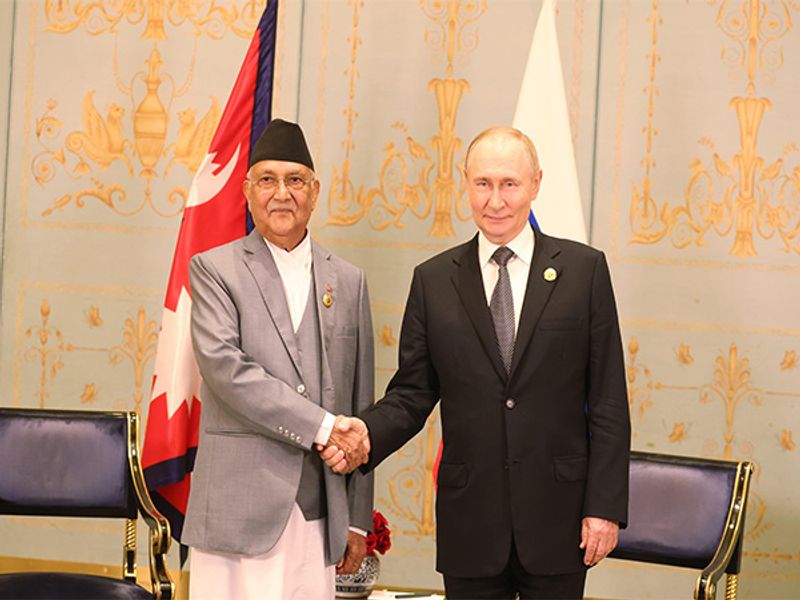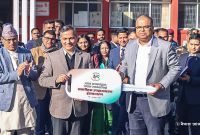Nepal PM Raises Mercenary Issue With Putin, But Talks Yield No Progress

Kathmandu – Nepal’s Prime Minister KP Sharma Oli raised concerns with Russian President Vladimir Putin over Nepali nationals being recruited as mercenaries in the Russian Army, but the meeting failed to deliver any breakthrough. The discussion took place on September 1 in Tianjin, China, on the sidelines of the Shanghai Cooperation Organization (SCO) Summit.
Foreign Secretary Amrit Bahadur Rai confirmed that the matter was formally presented by the Prime Minister but admitted there was no detailed negotiation. “The Right Honorable Prime Minister raised the issue. There was no detailed discussion. Further talks will continue through diplomatic channels, and both sides agreed on that understanding,” Rai told ANI.
The bilateral talks, which lasted around 30 minutes, did not resolve pressing questions about the repatriation of bodies of Nepali nationals killed on Ukraine’s frontlines or the safe return of those wishing to come home.
Despite Kathmandu banning travel to Russia and Ukraine in January 2024 and requesting Moscow to send back Nepali recruits, no official response has been received. Many Nepali youths are believed to have entered Russia through irregular routes, lured by promises of high wages and benefits.
Nepal confirmed the deaths of 43 of its citizens fighting in Russia’s ranks in September 2024, but no updated official figures have been released since. Former foreign minister Dr. Bimala Rai Paudyal, citing multiple sources and returnees, has estimated that as many as 15,000 Nepalis could be serving in the Russian military. Meanwhile, families of more than 200 fighters have filed appeals with Nepal’s consular authorities after losing contact with their loved ones.
In response to the continuing crisis, Nepal has made it mandatory for any citizen traveling to Russia to obtain a No Objection Letter (NOL) from the Consular Services Department or from overseas embassies. Nepalis are only officially permitted to enlist in the British and Indian armies under existing bilateral agreements.
As the war drags on, international diplomacy remains tense. U.S. President Donald Trump, who has sought to position himself as a mediator, voiced strong disappointment with Putin’s actions this week. Speaking to reporters on Wednesday, Trump warned of possible further steps against Moscow but also suggested he expected a “positive solution” through upcoming talks.
For families in Nepal anxiously waiting for clarity on their sons and brothers stranded in Russia’s war, however, uncertainty remains. With no concrete outcome from the Tianjin talks, Kathmandu faces mounting pressure to intensify diplomatic efforts to secure the safety and return of its citizens.




![From Kathmandu to the World: How Excel Students Are Winning Big [Admission Open]](https://nepalaaja.com/img/70194/medium/excel-college-info-eng-nep-2342.jpg)
